- Make It Yourself Lavender Heart-Shaped Bath Bombs!
- 20 Things You Never Knew About “Down There”
- 12 Best Foods For Those Suffering From Arthritis Pain
- 12 Personal Hygiene Mistakes Almost Everyone Makes (Mom Never Told You About #4!)
- 15 Medicinal Plants And Herbs From The Cherokee People
- 12 Mind-Blowing Benefits Of Drinking Coconut Water During Pregnancy
- 12 Outstanding Winter Foods That Won’t Fatten You Up Like A Christmas Turkey
Top 15 Things You Can Do Today To Prevent Cancer From Striking Tomorrow
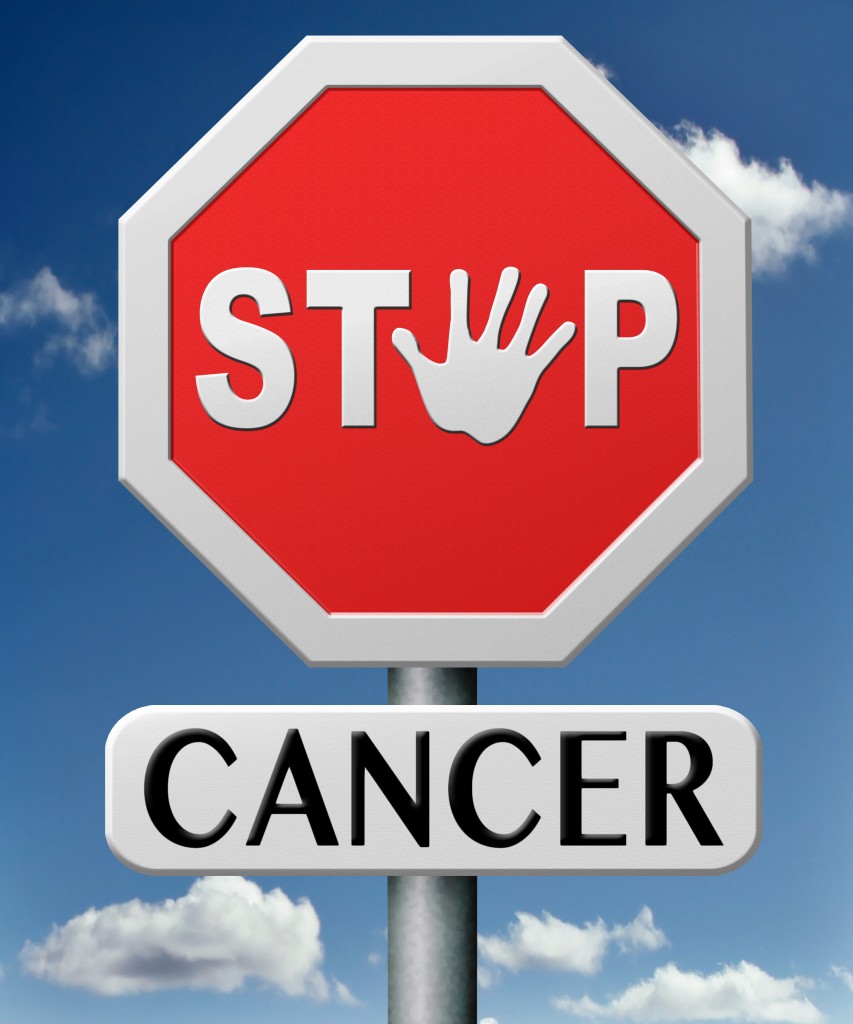
Photo credit: bigstock.com
Everyone is looking for ways to beat cancer. Did you know that a full third of the more than 1.5 million cases of cancer that people develop each year could have been prevented? According to the American Institute of Cancer Research, by adopting a healthier lifestyle, most people can prevent cancer from developing.
Cancer occurs when the cells in your body become damaged due to bad habits, causing them to mutate. Many factors initiate damage to the genes, but they are mainly due to poor diets, exposure to cancer-causing chemicals, and bad habits such as smoking.
By taking a proactive stance, you can prevent cancer from developing and save your life.
Find out the top 15 things you can start doing today to prevent cancer from developing tomorrow.
1. Work to Eat a Healthy Diet Instead of Relying on Supplements
Unfortunately, too many people in America believe that they can eat whatever they like, as long as they pop that multi-vitamin in the morning. The truth is that the absolute best source of nutrition is through whole, natural foods — not supplements. Don’t rely on those “fortified” foods, either. Anything that needs to be reinforced with synthetic vitamins or minerals means the original nutritional content was removed via processing, or the food never had any nutrition to start. Marketing geniuses try to convince the public that their lousy food is somehow healthy because they “fortified” it with some synthetic chemical vitamins. Don’t fall for it. Supplements can be a great addition for some people in certain situations, but don’t rely on them to replace a healthy diet.
Continue to Page 2
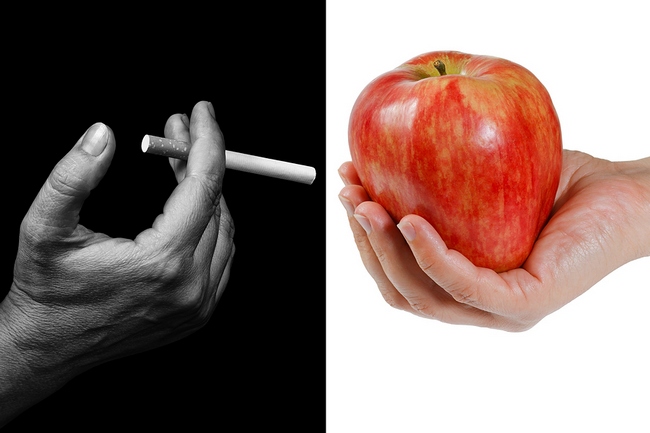
Photo credit: bigstock.com
2. Don’t Smoke
If you smoke, you’ve heard this a million times, but that doesn’t make it any less true. Smokers have the highest risk of developing numerous types of cancer, including oral cancer, cancer of the esophagus, lung cancer, bowel cancer, stomach cancer, and liver cancer, plus cancer of the cervix, ovaries, nose, sinuses, and even some types of leukemia. This is because most of the chemicals in cigarettes cause damage to our DNA, especially damage to the key genes that protect us from cancer. If you have tried everything but can’t seem to quit, try acupuncture, which has been shown in studies to help lower the urge for nicotine. Hypnotherapy has also helped many people stop smoking. Don’t give up! Many non-smokers will tell you that they tried to quit a dozen times before they were finally able to do so. If they can do it, so can you!
3. Limit Your Salt Intake
Most people think that sodium restriction is only for those with high blood pressure, but this isn’t true. To avoid cancer, you should limit your salt intake to no more than 2,400 mgs each day. This doesn’t mean simply table salt, but the added salt in processed foods, canned goods, and condiments like ketchup. This can be much more difficult than you think when you consider that an average restaurant plate of marinara pasta can have 3,000 mgs of sodium alone! We haven’t even talked about potato chips, bread, simple corn flakes, canned soups, or sauces such as A-1. Japan has one of the highest rates of stomach cancer due to the high consumption of salted foods. Try paying attention to your salt intake for just one or two days — you will probably be shocked by how much you are actually consuming. Look for low sodium options or avoid most added salt entirely by making most of your food from scratch at home so you can have more control over the amount of sodium you put in your body.
Continue to Page 3

Photo credit: bigstock.com
4. Consume Alcohol in Moderation
A review of more than 200 studies by The National Institute of Alcohol Abuse and Alcoholism found that excessive alcohol consumption increases the risk of cancers such as oral cancer, cancer of the larynx, cancer of the esophagus, stomach, colorectal cancer, liver cancer, breast cancer, and ovarian cancer. Excessive alcohol contributes to tissue damage throughout the body, as well as DNA changes, which, eventually, lead to cancer. Alcohol actually prevents our DNA from repairing itself. Moderate alcohol consumption, which is two drinks each day for men and one drink each day for women, has been linked to improved health. It is excessive consumption that’s the problem.
5. Limit Red Meat and Avoid Processed Meats
You most likely have heard all the fuss lately about recent research which has proven the link between the consumption of processed meats, such as hot dogs and bacon, and cancer. At NaturalOn, we have been saying this for quite some time. This recent study showed that eating as little as four ounces of processed meats each week dramatically increases your risk of colorectal cancer. Red meat, such as pork and beef, is fine as long as you limit your consumption. Experts recommend consuming no more than 11 ounces per week. Rather than rely on red meat, consume more of healthy fish, poultry, and wild game, such as pheasants, buffalo, or rabbit. You can also try substituting beans or quinoa once or twice a week, such as in the Meatless Monday programs.
6. Get Your Game On!
Getting regular exercise most days will not only reduce your risk of cancer, it also reduces your risk of diabetes, heart disease, and many other types of chronic health problems. Obesity is one of the leading risk factors for several types of cancer. Regular exercise improves the immune system and helps control your weight, as well as keeping your hormones in balance. The National Cancer Institute found that a sedentary lifestyle greatly increases the risk of lung, colon, and endometrial cancer. Get a minimum of 30 minutes of moderate exercise 5 to 6 days each week. You should also limit the amount of time you spend sitting or lying down. If you work a desk job, get up and walk around for just three minutes for every 30 minutes you spend sitting down.
Continue to Page 4
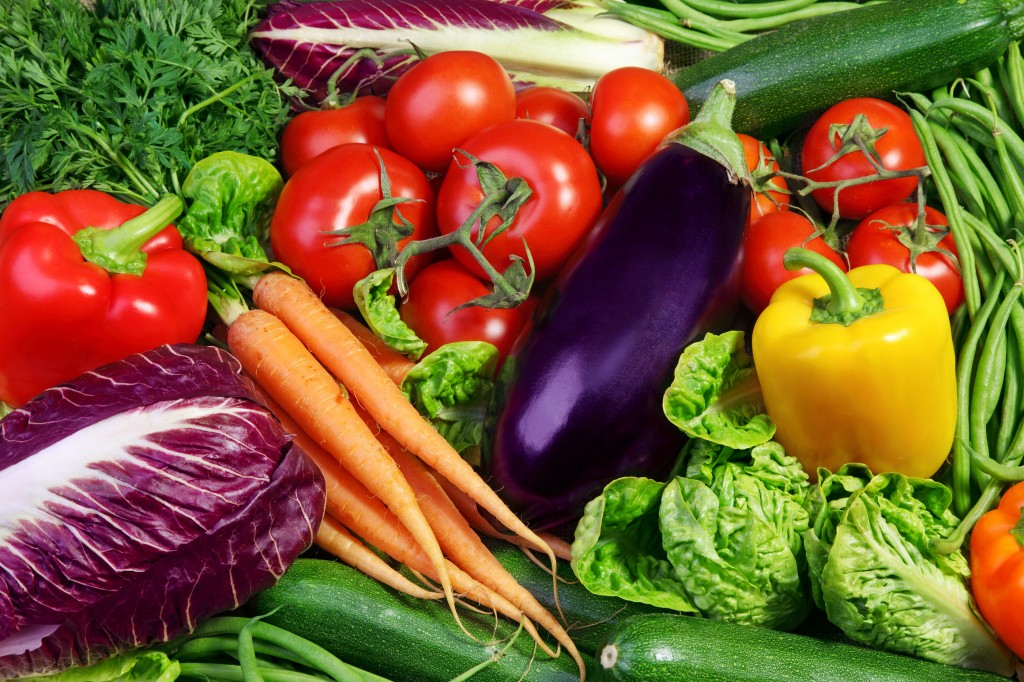
Photo credit: bigstock.com
7. Focus on Plants
Make the majority of your diet plant-based, and by all means avoid cancer causing foods. Plan your meals so that you get at least eight servings of fruits and vegetables each day. Make organic fruits, vegetables, legumes, and beans the main focus of your diet, with meat being a minor part. One great way to do this is to start each lunch and dinner with a large salad. This is one part of your day where super-sizing your diet is a good thing! Eat as big a salad as you like! Fill it with vegetables and even a bit of protein if you like, such as white meat chicken, beans, tofu, and even a few cubes of hard cheese like cheddar. This doesn’t mean you should give up meat, but make it a side dish or add a very small amount, rather than making it the focal point of your meals.
8. Maintain a Healthy Weight
For many people, this is easier said than done, but it is an important part of fighting cancer. Facts show us that overweight and obese people are much more likely to get cancer. Obesity changes the function of the adipose tissues, which leads to chronic inflammation and insulin resistance. Obesity is also linked to a recurrence of cancer as well as overall mortality levels. Take whatever steps are necessary to lose weight gradually but steadily. Simply cutting back 500 calories each day will result in a weight loss of about one pound each week. This doesn’t sound like much, but imagine, if you continue do lose this amount each and every week, losing 52 pounds in one year? It is possible. If you want to avoid cancer, lose those extra pounds.
9. Avoid Sodas
Calorie-rich but nutrient-poor, sugary sodas, juices, and other drinks are the easiest way to gain weight and put you on the track toward developing cancer. Studies have suggested that one in every five calories consumed in America now comes from beverages, including those grande lattes that the Big Bucks coffee shops are serving. Sugary drinks, such as sodas, are loaded with calories, but have nothing else to offer you. They don’t satisfy your appetite, they don’t provide your body with any sort of nutrition, they only give you a very short burst of energy, plus lots of added calories. A diet high in sugar has not only been linked to diabetes and weight gain, but to cancer as well. For your health’s sake, drink more water or herbal tea.
Continue to Page 5

Photo credit: bigstock.com
10. Get Smart about the Sun
Americans are so afraid of the sun, estimates show that 80 to 90 percent of us are deficient in vitamin D. Our bodies turn sunshine into vitamin D. Study after study has shown that people with the lowest levels of vitamin D in their blood tend to have the highest risk of developing cancer. This isn’t to say that you should spend all day, every day, sunbathing. Moderation is the key here. You need to avoid most of the damaging UV rays of the sun, but at the same time, you do need some exposure to sunlight. If possible, get about 30 minutes of early morning sunlight on your bare skin. This will get you the vitamin D your body needs to fight cancer. However, to avoid skin cancer, avoid the harsh, midday sunlight and avoid getting more than an hour of sunlight each day. Don’t forget to wear sunglasses to protect your eyes from the sun. If you live in an area with little sunlight or with very long winters, opt for indoor tanning beds that do not use UV lights. If you cannot get natural sunlight, consider taking a vitamin D supplement. Speak with your doctor about the proper dosage for your unique situation.
11. Consider Vaccination
Although some people may not like this, the truth is that certain viral infections have been shown to increase the risk of developing certain types of very aggressive cancers. Several studies, including one in 2012, published by Cancer Prevention Research, showed that vaccinations for hepatitis B and the human papillomavirus (HPV) can be quite effective in reducing certain types of cancer. Hepatitis B increases the risk of developing cancer of the liver. HPV is a sexually transmitted virus that causes cervical and other types of genital cancers. Vaccinations do come with certain risks, so only you and your doctor are the best qualified persons to decide whether these types of vaccinations are right for you. Speak with your doctor.
Continue to Page 6
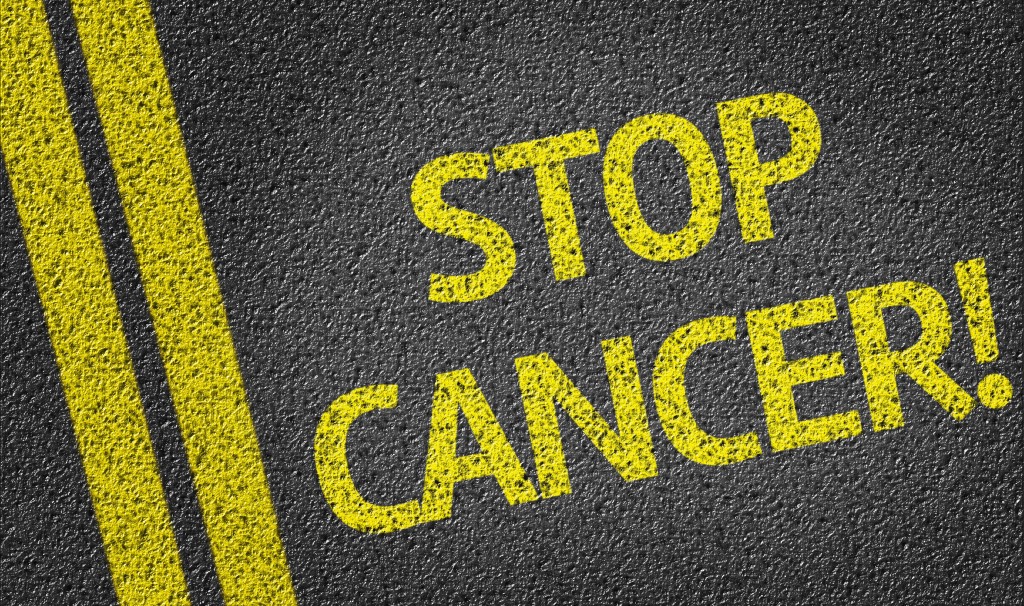
Photo credit: bigstock.com
12. Get Screened
Regular health checkups and cancer screening tests can help to stop cancer before it gets a foothold in your body. Almost all cancers can be treated when caught early. Screenings won’t stop cancer from occurring, but it can be found when it is most treatable and before it spreads further. Speak with your doctor about which tests are right for you based on your family history, your age, and your current state of health.
13. Adopt a Healthier Lifestyle
Although staying up late each night, skimping on sleep, working seven days a week, drinking each weekend night into oblivion, doing recreational drugs, or spending your nights and weekends on the sofa watching the latest Netflix marathon sounds like a good time, you are doing your body irreparable harm. Aim for moderation in everything. This means getting seven to nine hours of sleep most nights, eating a healthy diet as often as possible, getting regular exercise almost every day, drinking in moderation, avoiding drugs, and limiting stress. This type of lifestyle may not be as exciting, but it certainly has its rewards in the long run. You will live a longer, healthier life, free from cancer, which is something many people, who live life in the fast lane, will not be able to obtain.
14. Avoid Excessive Antibiotic Use
Overuse of antibiotics, as well as over the counter medications, have been linked to a weaker immune system. Antibiotics kill not only the bad bacteria in the body, they kill almost all the bacteria in the body, including the good ones in your digestive system that naturally keep you healthy. The International Journal of Cancer published a study finding that the overuse of antibiotics increases the risk of cancer. The Journal of Pharmacoepidemiology and Drug Safety also published a study in 2010 finding that antibiotic use was linked to a higher risk of breast cancer. Remember that antibiotics only kill bacterial infections and do absolutely nothing to fight viruses such as the flu or the common cold. Keep your immune system strong by eating more probiotic rich foods such as yogurt, kefir, pickles, sauerkraut, and kombucha. Never consume antibiotics unless you absolutely need them.
Continue to Page 7
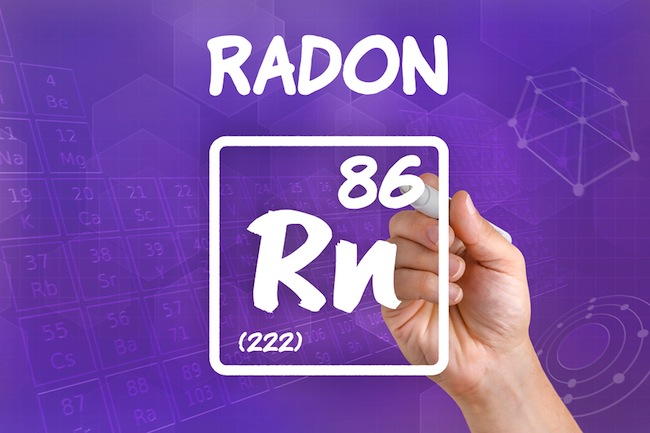
Photo credit: bigstock.com
15. Limit Your Exposure to Radiation
Both gamma rays and X-rays cause cancer in humans. The National Research Council published a study in 2005 finding that even low exposure to X-rays or gamma rays greatly increased the risk of developing cancer. Another study in 2012, published in the Cancer Journal for Clinicians, confirmed that radiation from diagnostic imaging procedures increases the risk of cancer. Of course, X-rays and MRIs can be lifesaving, but don’t submit to them unless there is a true need. Wear a lead apron or a lead neck collar (to protect your thyroid) on parts of the body that are not undergoing testing. If you work in areas that are filled with radiation, such as nuclear power plants or uranium mines, always wear protective clothing and other equipment to protect your body from cancer-causing radiation.
READ ALSO: 20 Inexpensive, Natural Foods To Prevent Or Reverse Cancer
Of course, genetics also play a role in the development of cancer, which makes screenings more important for those who have a family history of cancer. However, for most people, following the 15 tips above should prevent most cancers and give you a healthier, longer life.
References:
































